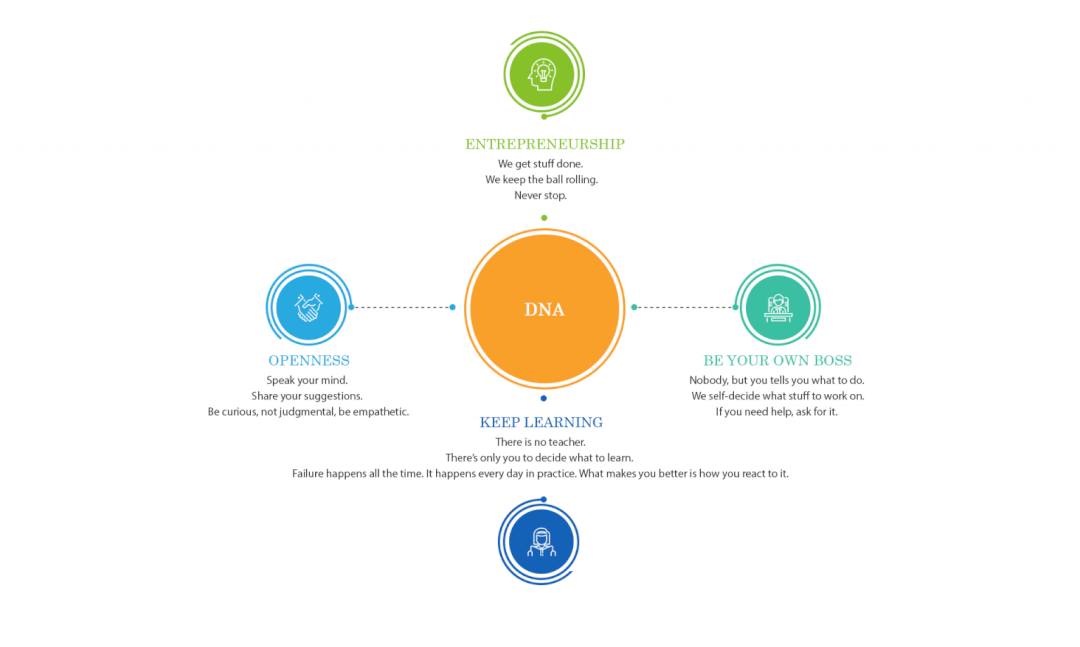About Ekipa
The 1 Million Mission
Our Story
We’re on a journey to touch 1,000,000 people with the agile ‘spark’.
Ekipa Consultancy brings the ‘Agile spark’ to Singapore’s business ecosystem.
We spark 3 things:
- Self-organisation. Everyone knows how to set the right priorities and can work without a boss. We coach people to get there
- Entrepreneurship. Fixing stuff, making the world a better place, breaking rules, doing what nobody else is doing. That’s what we do and teach.
- A balanced workplace. We set high standards, deliver quality and push ourselves. And we also value working smarter, not harder. Let others say they’re busy.
Ekipa is a leading end-to-end Agile Innovation Consultancy. We exist to help our clients adopt agile practices and new ways of working, leading to better business outcomes for them, and we also help them to innovate, and create a sense of entrepreneurism with their organisational cultures.
Ekipa’s team, located across the South-East Asian region, is multi-disciplinary and diverse.
We believe today’s value creation is about breaking the rules of the game. Technology enables startups to disrupt any industry. Young entrepreneurial people see opportunities and go out to realize them. Enterprises have all the money, resources and market to do the same. Our programs foster intrapreneurs to go out and launch the winning products of the future inside their enterprises.
Learn more about how we work in Agile ways ourselves – Ekipa Reinvented

Ekipa DNA
The DNA of Ekipa is built on the following characteristics:
To get the right co-workers on board, We need a strong DNA. This helps us to decide who ‘fits’ and who needs support on what. We ensure that anyone who joins our team matches with this DNA. And we make it our daily responsibility to develop this DNA within ourselves and our co-workers

Ekipa Reinvented
The Story
Co-worker Assumptions
- People are systematically considered to be good (reliable, self-motivated, trustworthy, intelligent).
- We’re all creative, thoughtful, trustworthy adults, capable of making important decisions;
- We’re all accountable and responsible for our decisions and actions. INTEGRITY: our word is our bond.
- People are fallible, we make mistakes.
- We want to use our talents and skills to make a positive contribution to the organization and the world.
- We bring positivity, play, JOY and APPRECIATION to our workplace.
- We relate to one another with an assumption of positive intent.
- Until we are proven wrong, trusting co-workers is our default means of engagement.
- Freedom and accountability are two sides of the same coin.
- We each have full responsibility for the organization.
- If we sense that something needs to happen, we have a duty to address it.
- It’s not acceptable to limit our concern to the remit of roles.
- Everyone must be comfortable with holding others accountable to their commitments through feedback and respectful confrontation.
Growth and Learning
- Everything that we do for the first time in Ekipa is an experiment, and all experiments provide data that we can use to improve ourselves and our organisation.
- Every experiment that we conduct will bring its own unique set of challenges and opportunities. These challenges are a chance for us to learn and grow.
- In taking on these challenges, there is a possibility that we will not succeed.
- Rather than labeling this as failure, we will discuss the situation openly, identify the lessons that can be learned, and invite feedback from each other, in order to continuously improve ourselves and our team.
Roles; no Hierarchy, no Job Descriptions
Decision Making
- Someone notices a problem or opportunity and takes the initiative, or alerts someone better placed to do so.
- Prior to a proposal, the decision-maker may seek input to sound out perspectives before proposing action.
- The initiator makes a proposal and seeks advice from those affected or those with expertise.
- Taking this advice into account, the decision-maker decides on an action and informs those who have given advice.
If the decision maker can’t reach a decision on his own to resolve important issues, a team meeting is organized with the following process:
- Team appoints facilitator
- Agenda and topics selected based on current issues
- Proposals for resolution are shared
- Review, improve and refine proposals
- Group makes a decision. Not consensus. Accepted is solution without anyone having a principled objection.
- The facilitator can’t make any statement suggestions or decision.
- You can’t veto a solution just because you think another (or your own) solution is better.
- The solution can be revisited at any point if new information is available.
- If the team gets stuck, you can ask for an external facilitator
Meeting Rhythm
To execute work, team(s) hold regular alignment meetings. All meetings are MANDATORY; it’s beneficial for team alignment. We have found scrum to work well. In Scrum, we have the following meetings:
Conflict Resolution
- It’s impossible to change other people. We can only change ourselves.
- We take ownership for our thoughts, beliefs, words and actions.
- We don’t spread rumors. We don’t talk behind someone’s back.
- We resolve disagreement one-on-one and don’t drag other people into the problem.
- We don’t blame others. When we feel like blaming, we take it as an invitation to reflect on how we might be part of the problem (and the solution).
If two co-workers have a conflict, there is nobody but yourselves to resolve the conflict. To reach a resolution, the following CONFLICT RESOLUTION PROCESS is followed:
- the two co-workers sit together, discuss the conflict and try to find a resolution.
- if that doesn’t work, you seek advice from 1 trusted colleague
- if that doesn’t work, they elect a panel to help resolve it
- the CEO is asked to resolve it
In all cases, you are expected to keep the information to yourselves and not seek others to be on your side. Nobody should spread the information.
If you find it hard to open up to someone you have a conflict with, use the following three topics in your conversation with the person:
- Here is how I feel…
- Here is what I need…
- What do you need?
